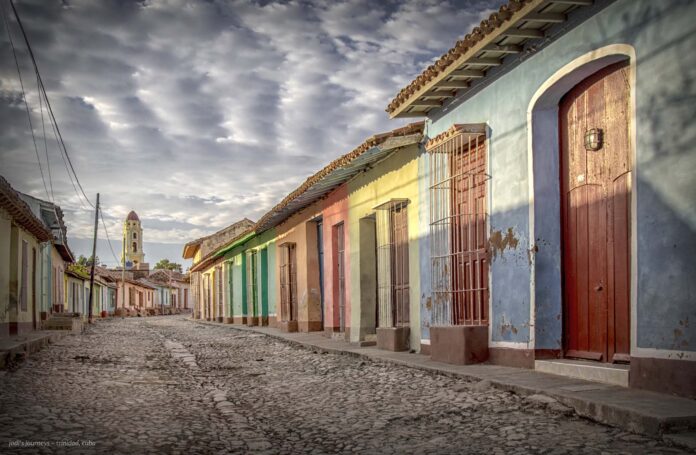
By Amado Viera
HAVANA TIMES – Is it worth visiting Cuba these days? Is it safe? Does going there imply contributing to the enrichment of a dictatorial regime?
Many citizens of Canada, Europe, the USA and other countries often ask themselves such questions when considering the possibility of traveling to Cuba. Answering them is not always easy.
Views about the island are extreme. Travel agencies present it as a tropical paradise with dream beaches and classic cars meticulously preserved. Meanwhile, the complaints from opposition activists describe a society marked by scarcity and oppression.
It is hard to distinguish the true face of the country between these two narratives. To help those who may be considering taking (or not) a flight to the island, Havana Times has compiled a list of pros and cons of such a hypothetical trip to the only communist nation in the Western Hemisphere.
1- Against: value for your money. Despite having relied on tourism as its main economic activity for over 30 years, Cuba still does not live up to other Caribbean destinations. Many hotels have accumulated criticism for their lack of cleanliness, poor condition, limited menu variety, and unprofessional staff. In contrast, the prices for rooms and most non-hotel offers (excursions, etc.) are as high as those of their mid-to-high-range competitors in the rest of the region.
2- Against: bad roads and fuel shortages. According to the authorities, more than 70% of the roads are in poor or fair condition. Due to this situation, the free-roaming livestock grazing near the roads, and the large number of vehicles driving without lights and other basic safety elements, many agencies recommend tourists not to drive. Another obstacle to overcome is the chronic fuel shortage. Outside Havana and the main tourist centers, its availability is intermittent, even for those paying in dollars.
3- Against: health crisis. Before the pandemic, Cuba had kept diseases like dengue and chikungunya under control by investing millions of dollars annually in preventive measures. The economic crisis forced a cutback in those expenses and in garbage collection, which has allowed for the spread of vector-borne diseases. This situation does not affect the tourist areas of the Keys, but it is noticeable in Havana and other inland cities, prompting some countries to issue travel alerts for their citizens.
4- Against: blackouts. This is another phenomenon that tourist resorts avoid but is intensely felt in the interior of the country, and to a lesser degree in Havana. While all hotels and most private rentals have backup power sources, long service interruptions—sometimes over 20 hours a day—can affect various activities, from visiting museums to refueling. It’s recommended to travel with a power bank and cash.
5- Against: potential travel problems to the United States. Given that the US government designates Cuba as a “state sponsor of terrorism,” those who travel to the island may have trouble entering the United States later. This restriction is not automatic and is usually lifted after a few months, but it constitutes a significant inconvenience for businesspeople and others who need to travel regularly.

1- In favor: safety. Although there has been an increase in crime in recent years, the safety levels in Cuba remain much higher than in the rest of the continent. Additionally, there is the perception, not entirely unfounded, that crimes against foreigners are investigated with greater diligence. Even the average citizen tends to adopt a protective attitude toward foreign visitors. In January, dozens of Havana residents stopped and handed over to the police an assailant who had attacked an elderly British man to rob him.
2- In favor: a rich and diverse cultural scene. Thanks to the innate talent of its population and numerous art schools, Cuba has an active cultural life, more vibrant and diverse than that of other countries in the region. Foreign visitors can access it by paying a symbolic price or for free. As a workaround to the blackouts, several inland cities have created “cultural corridors,” areas where theaters and other art centers are grouped, and which are less affected by service interruptions.
3- In favor: free from overcrowding. It’s the ideal destination for those seeking tranquility. Even during high season, the beaches and other tourist spots do not suffer the overcrowding seen in other Caribbean destinations. In 2024, the hotel occupancy rate averaged 25%; despite this, government-managed chains insist on keeping as much staff as possible, so that more employees can be available for each tourist.
4- In favor: experience a completely “different” country. Traveling to Cuba, to some extent, also implies a journey through time and to an unusual reality for many. Likewise, there are many terms used in everyday language that are unknown in other countries or used with completely different meanings in Cuba. The most authentic “Cuba experience” is not intended for everyone, but it’s hard to compare it with any other experience elsewhere in the world.
5- In favor: support for civil society, and thus, the democratization of the island. Despite the government’s efforts to capture the largest possible share of the tourist income, tourism remains Cuba’s most transversal economic activity. Thousands of families maintain their financial independence thanks to private rentals, car rentals, artisan sales, or food services. Measures such as Trump’s 2017 total ban on US citizens traveling to Cuba forced many of these family businesses to close, impoverishing a significant portion of the population and making them more dependent on the government. Tourism revenue plays a fundamental role in developing civil society and, eventually, also, in a future democratization.

Read more from Cuba here on Havana Times.




